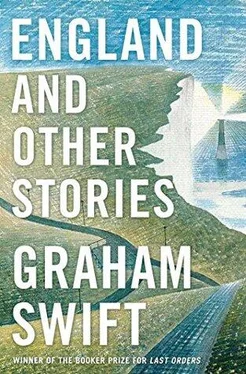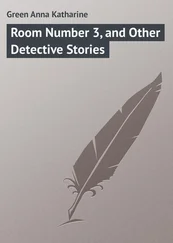And now he was stranded, or he was rescued, on Exmoor.
‘Johnny Dewhurst wish he were back in Leeds, man. Johnny Dewhurst wish he were back in Dewsbury.’
He seemed to speak from the depths of his soul. But you really couldn’t tell.
A moment had come. They both upended their thermos cups, both making the same, mutually accepted, grimace. They shook out the dregs, roadside fashion. It was a piece of perfect mime. There was no one to see it.
‘You come to my show in Ilfracombe, if you like. Il-frah-coombe! Bring your Missis Coastguard. I don’t have a bag of money to give you, I don’t have any free tickets. But you come if you want. Johnny Dewhurst entertain you.’
A challenge? A genuine invitation? A forlorn hope?
‘Then I know I have an audience?’ He screeched and hissed and pistoned his shoulders again.
Then, by more mutual, resigned understanding, they turned to their cars.
‘You go first, Mister Coastguardman. Johnny Dewhurst have to water Exmoor. Three-nine-nine. I remember. I see it, man! I see it up in lights!’
He couldn’t think of anything witty or memorable to say, but then he was the straight-man, apparently. He said, ‘Take care now.’ It was what coastguards said when they put some foolish member of the public right. Take care now.
He started his car and drove slowly by with a final wave, then continued along the straight, gradually rising road. He didn’t speed. He would make it. He also needed to think. Now he was back in his car, with his lights on, it seemed that dawn had retreated, it was semi-dark again. He looked in the rear-view mirror. The other car remained stationary.
How did someone decide to be a comedian? He’d wanted to be a coastguard since he was small. It was no more than a boy’s yen, perhaps, for the seaside, for things maritime, though he hadn’t wanted, clearly, the perils of the open sea. He’d wanted perhaps the taste of adventure, but with a good measure of its opposite. He’d never wanted to be a sailor, a soldier — or even a policeman. He’d seen himself, yes, with a vigilant stare and a mug of cocoa. It was a commendable, if not necessarily a courageous thing, to guard the nation’s coastline. He’d wanted, if he were honest, to be a preserver of safety, while having — and perhaps the one thing conferred the other — a large slice of safety himself.
Was being a coastguard courageous? No. It was ninety-five per cent not courageous. There were incidents, some of them nasty, there were rescues. You were in the business of rescue. Was rescue courageous?
But it was certainly courageous, it was unfathomably courageous to do what Johnny Dewhurst did. Could he, a man from Somerset, possibly go to Leeds (he’d never been to Leeds, he’d only twice been to London) and, with his West Country voice, his joke of a voice, get up in front of a local audience? And make them laugh . His knees buckled at the thought of it.
He looked in the rear-view mirror. The car hadn’t moved. It was just a distant twinkle. The poor man had hundreds of miles yet to drive. Did he really sleep in it? What the hell would he do in Ilfracombe at six in the morning? But what the hell was he doing anyway, there, at five?
He hadn’t done enough, surely, not nearly enough, just to lift him back onto the road.
But, as he mounted another ridge and the car behind disappeared, it seemed somehow that its existence and everything that had happened, from the ghostly deer onwards, became obscure and doubtful too. Had it really all happened?
He should now be eagerly working out how he’d tell the story, to his colleagues, his fellow coastguards, and then, later, Ruth. You’ll never guess, you’ll never guess. On the Culworthy road, at five in the morning. I met a comedian.
But the more he reflected, the more it seemed impossible. How to begin, how to be believed? How to convey every important detail? It was a story he didn’t have the power of telling. So, better not to tell it. It was one of those stories you didn’t tell. He wondered, already, if he believed it himself.
He reached the main road, which he would briefly follow before turning off again. There was the conspicuous sign: ‘Barnstaple, Ilfracombe’. The man could hardly get lost. To his right now were bigger, broader pockets of sea, touched, as the land wasn’t yet, by rays of pink-gold light from the east. It was the Bristol Channel. It was also the Atlantic Ocean. It was, at this point, a satisfying expanse of water. Swansea lay beyond the horizon, further away than Calais from Dover. Ships, he knew, had once sailed up the Bristol Channel with cargoes of sugar. On the way out they’d made for Africa. Then sailed west.
He took the familiar right turn, the narrow twisting road. In a while he’d see the white buildings with the lighthouse. On some mornings it could still take his breath away. And if you arrived at sunset. .
It wasn’t a head-in-the-sands job — if that wasn’t a joke in bad taste. There was bad stuff. There were suicides, washed-up bodies. But he could never go to Leeds. And it was a job, by very definition, perched on the edge and looking out. It was also, by definition too, mainly stationary. A coastguard station. He thought of Johnny Dewhurst’s amazing itinerary.
Was it true? Was it really a story to be told? He patted suddenly his breast pocket, containing the flyer and the card, as if even that hard evidence might have been mysteriously whisked away from him.
Should he take Ruth to Ilfracombe? Tonight. Should he explain, and should he take her, even under protest? I think we should go. But would that risk having his roadside encounter hurled outrageously back at him — and at Ruth? Have you heard the one about the lost coastguard? On Exmoor. That’s right, missis, a coastguard on Exmoor. Would he risk discovering that he’d now become ‘material’—in Ilfracombe and all points to Skegness?
He thought of that double-act that was never going to happen. Kenny Coastguard — or Kenny Black?
No, he’d tell no one. Not even Ruth. In time even Johnny Dewhurst, like that questionable deer, might start to seem like a hallucination.
The familiar tower of the lighthouse appeared before him, its topmost, no longer functioning section nonetheless touched with pink glinting light. He sat on the edge of England, supposedly guarding it, looking outwards. He knew a bit about the Bristol Channel, its present-day shipping and its history. He knew a bit about Exmoor. But Exmoor wasn’t England — much as you might want it to be. Brand-new shiny SUVs nosed around it like exploring spacecraft. He knew what he knew about this land to which his back was largely turned, this strange expanse beyond Exmoor, but it was precious little really. He really knew, he thought, as he brought his car to a halt again, nothing about it at all.












